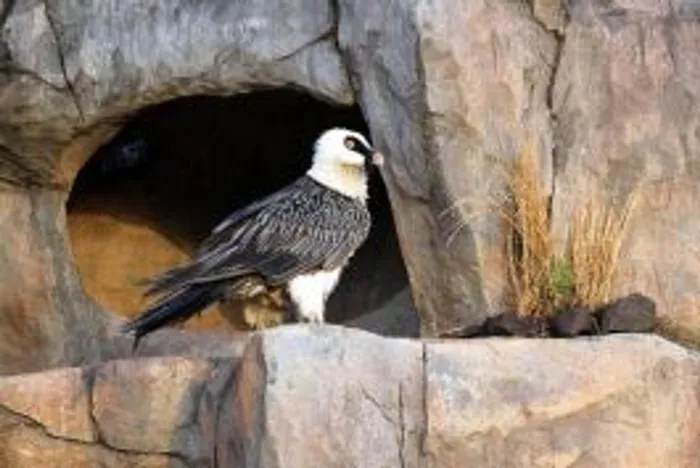Bearded vulture on the edge of extinction

The bearded vulture is critically endangered, prompting several organisations, including traditional healers, to do all they can to ensure the survival of the species. Picture: Supplied
Education and captive breeding are two of the main prongs of multifaceted programmes to save the critically endangered bearded vulture.
The birds live among the crags of the Drakensberg/Maluti Mountains.
Organisations such as the Bearded Vulture Task Force, the steering committee of the Bearded Vulture Recovery Programme which includes Ezemvelo KZN Wildlife, and the African Raptor Trust are working towards saving the species from extinction.
One project goal is to inform people about bearded vultures and create enough public appreciation for the species that they want to take an active part in their custodianship.
“To fight the decline of vultures, we need to reduce mortality and increase productivity sites, reduce poisoning and increase awareness around poisoning,” said Ezemvelo KZN Wildlife spokesperson Musa Mntambo.
He said some of the main human-created threats to the birds were farmers poisoning carcasses to kill jackals, killing the birds who scavenge on the remains. They are also poisoned for use in muti and can be electrocuted by power lines.
He said there were only 100 breeding pairs and a total population of only 320 birds in the wild and the number was declining.
The organisations believe communities have an important role to play in ensuring the survival of these birds.
The African Raptor Trust has been running an awareness campaign to change attitudes and behaviour and a captive breeding programme since 2013.
Spearheading its awareness campaign is a female at the African Bird of Prey Sanctuary. The bird was confiscated from a sangoma and is not able to fly. She was part of the breeding programme the Trust hoped would create a genetic reservoir to supplement dwindling wild populations and safeguard against species extinction.
Bearded vultures breed in winter and, while they lay two eggs, only a single chick is raised. These biologically redundant second eggs can be carefully harvested and the chicks raised by surrogate parent birds at its sanctuary to be released into safe wild areas.

Mntambo said that while they were custodians of wildlife, including the vultures, their efforts would amount to nothing without the involvement of other role players.
The National Unitary Professional Association for African Traditional Health Practitioners of South Africa (NUPAATHPSA) supported the initiative.
NUPAATHPSA KZN treasurer Mlungisi Mlaba said they were involved because they understood the survival of the bearded vulture was in everyone’s best interest.
“We get our members to attend workshops on animals and plant species on the endangered list so they know what we can and cannot harvest,” said Mlaba. He acknowledged there could be instances where some traditional health practitioners were ignoring the protocols on endangered species.
“The reality is that when practitioners belong to a structure such as ours, they are held accountable and they know what to do and what not to do when it comes to endangered species, in this case the bearded vulture,” Mlaba said.
He said they would continue to encourage traditional health practitioners to be part of the drive to ensure the survival of the bearded vulture.
Related Topics: